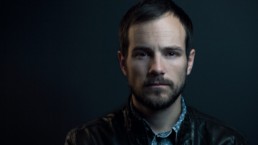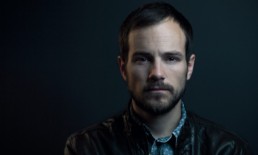‘Almost Holy’ Director Steve Hoover on Taking Risks in Ukraine
This is a custom heading element.
The last time I spoke to director Steve Hoover, it was about his latest Sundance award-winning documentary, “Blood Brother.” Since then, he has been busy making his second feature-length documentary “Almost Holy,” a powerful and culturally charged film that profiles homeless youth in Ukraine and one man’s mission to save them all. That man’s name is pastor Gennadiy Mokhnenko, and his story is nothing short of inspiring despite the dire circumstances. In our interview with Steve, we talk about the biggest risk he took in making the film, working with composer Atticus Ross, and the meaning behind the film’s title. We begin:
The last time we talked, it was about your film “Blood Brother”, which fits very much into the same vein as “Almost Holy”. What draws you to these raw, hard-hitting documentaries?
I can’t say I’m drawn to the subject in particular, there are a lot of parallels with a strong central character trying to help children. My friends had gone on a trip and were working on a project in Ukraine and had met Gennadiy. They had essentially detoured from the project they were doing and followed him for a few days. They had approached him about being the subject of a documentary and he was open to it, so they asked me to direct it. Initially, I was a little hesitant because of all of these parallels but when I saw Gennadiy on camera, he just had this strong presence and I was interested in him. Just him as a character was something I wanted to understand.
When we talked last time, you said something about “not being able to fully capture the experience on camera.” Do you feel the same way with this film?
Going to India to film “Blood Brother” was the most exotic place I had been, so part of what I was saying was just the experience of that was a hard thing to communicate. Also the experience of meeting those kids. Ukraine is such a different place than India, there is some familiarity there but also an incredible disconnect. I didn’t speak the language so that was another confusing element. I tried really hard to capture and show some of the feelings I had being there. There were so many nuances to every story that Gennadiy was involved in, not all of that can fit into an hour and a half long film.

Was there any apprehension from your friends and family when you told them that you were heading to Ukraine to film?
I have traveled a lot for shoots, so initially, not really. When we started filming, the conflicts and protests hadn’t begun yet so Ukraine was, from all we could tell, a fairly safe place. I was planning a second trip, but since then, violence had broken out, mostly in the West. There were government warnings saying not to travel but we went anyway. So yeah, people didn’t feel great about that because it was dangerous then.
Has Gennadiy seen the film?
He has, he was there at the Tribeca premiere. He had a pretty intense emotional reaction to the film, he hadn’t seen a lot of that archival footage for years.
Terrance Malick’s attachment to this film must have been a huge deal.
Yeah, he offered creative input, so it was nice to have him as a resource.
Same with Atticus Ross I’m sure.
Atticus was great to work with, he was very involved in the process. It’s great to have somebody like that to bounce ideas off of. Atticus came in early on, he had assembled some works in progress in the same aesthetic and direction we were headed. We felt like he could really compose a sound that would be fitting for Ukraine.

Can you tell me why you changed the title from “Crocodile Gennadiy” to “Almost Holy”?
There is a moment in the film when he brings a pedophile into the police station and the guy sort of calls him out, saying Gennadiy was lying. He said, “I thought you were holy,” and Gennadiy says, “Almost.” It was this really intense, under-the-breath exchange between the two of them. This was the name I wanted to call it originally, the working title was “Gennadiy” which is a really common name in Russia. I initially thought it was interesting because Genaddiy is such an uncommon person but it’s one of those names that people can’t remember, they can’t spell, half of the time can’t pronounce. As the film developed, the “Crocodile” came in there, but it’s a hard title for people to stick with, so we ended up switching it to “Almost Holy.”
What was the biggest risk you took in making the film?
The biggest physical risk was going back to Ukraine during a time of high political tension. For me, it’s probably something that I will never do again. Some stories might be work risking your life for, but I can’t imagine that I will ever be following a story like that.
Morgan Rojas
Certified fresh. For disclosure purposes, Morgan currently runs PR at PRETTYBIRD and Ventureland.


